Introduction to Pipe Spools
A pipe spool is a modern method used in building piping systems, made from prefabricated parts like pipes, elbows, tees, and flanges that are welded together before reaching the job site. This method is increasingly popular across industries for its efficiency.In tight spaces like city construction zones, on-site pipe fabrication can be difficult. Pipe spools solve this by allowing engineers to build the piping off-site in a controlled environment. Once completed, the spool is transported and installed quickly, saving space and time.Pipe spools are widely used in chemical plants, refineries, pipelines, offshore platforms, and for transporting crude oil or water. They’re ideal for projects where speed and limited space are key factors.
Pipe spool refers to a small section of pipe with
flanges and
fittings prefabricated from a pipe manufacturer. Since they are exposed to the natural environment, water and other natural electrolytes in the pipeline system, they are often prone to corrosion. When maintaining pipe spools, adequate preventive and repair monitoring must be carried out to ensure their normal operation.
What are the parts of pipe spool manufacturing?
Pipe spool manufacturing is a precise process that transforms raw pipes and fittings into ready-to-install units. It mainly involves two key stages:
1. Roll-On and Welding
In this stage, raw pipes are cut to required lengths and matched with fittings like elbows, tees, and flanges. The components are aligned and tack-welded for positioning. Once verified, full welding is performed to secure the parts using appropriate welding techniques.
2. Final Assembly and Welding
Sub-assemblies are then permanently joined based on the spool drawing. This step includes final welding, dimensional checks, and quality inspections. Non-destructive testing (such as UT or RT) may be used to ensure weld strength and integrity.
Applications and advantages of pipe spool
Pipe spools are widely used in industries such as oil and gas, petrochemical, power generation, water treatment, and marine engineering. Their primary function is to simplify and speed up the construction of piping systems by delivering pre-fabricated, quality-controlled pipe sections ready for installation. This approach minimizes on-site welding and fitting, reducing labor costs, project timelines, and potential safety risks. Since spools are manufactured in controlled environments, they meet strict dimensional and quality standards, ensuring better weld integrity and overall system reliability. Additionally, using spools allows for improved material handling, streamlined logistics, and more efficient use of skilled labor, making them a smart choice for complex or large-scale piping projects.
The main advantages of using prefabricated pipe spools include:
Time savings: Since the pipe spools are manufactured off-site, the time for on-site assembly and welding is reduced.
Increase efficiency: Pipe spools reduce on-site space constraints, making construction more efficient.
Reduce labor requirements: Prefabricated pipe spools reduce the need for on-site labor and reduce costs.
Anti-corrosion measures for pipe spools
Anti-corrosion measures for pipe spools are essential to ensure long-term durability and performance, especially in harsh or corrosive environments. These measures typically begin with surface preparation, such as sandblasting or chemical cleaning, to remove rust, oil, and mill scale. After cleaning, protective coatings like epoxy, polyurethane, or zinc-rich primers are applied to form a barrier against moisture and corrosive agents. For severe conditions, multi-layer coating systems or internal linings (such as fusion bonded epoxy or cement mortar) may be used. In addition to coatings, cathodic protection systems—like sacrificial anodes or impressed current—are often installed for buried or submerged spools. Material selection also plays a key role; using stainless steel or corrosion-resistant alloys can significantly reduce the risk of corrosion. Proper storage, handling, and regular maintenance further enhance corrosion protection throughout the spool’s service life.
Pipe spools and their entire pipe system are prone to corrosion and degradation. Common anti-corrosion measures include:
Applying protective corrosion-resistant coatings such as epoxy coatings during the manufacturing process.
Using pipeline pigs for routine inspections to ensure that there are no cracks and corrosion during the operation of the pipeline.
Manufacturing process of pipe spools
The pipe spool manufacturing process begins with the selection and procurement of raw materials such as pipes, fittings, and flanges that meet industry standards like ASME or ASTM. Pipes are then cut to precise lengths and beveled at the ends to prepare for welding. After this, components are accurately assembled and tack-welded to ensure correct alignment before full welding is performed by certified welders following approved Welding Procedure Specifications (WPS). All welds are subjected to non-destructive testing (NDT), such as radiographic or ultrasonic inspection, to verify structural integrity. If required, hydrostatic testing is conducted to check for leaks under pressure. The spools are then cleaned, coated with protective paint or anti-corrosion treatment, and clearly marked with identification tags and flow direction. Finally, each spool undergoes a thorough inspection before being securely packaged and shipped to the installation site for efficient assembly.
The manufacturing process of pipe spools is usually divided into two stages:
Pipe segment production: The raw pipe is cut into predetermined sizes and temporarily assembled with pipe fittings and other components.
On-site installation: The partially completed sub-assemblies are transported to the site and welded together with other spool components to complete the final installation.
Main Components of a Pipe Spool
A pipe spool is made up of several key components that are prefabricated and assembled to form a complete piping section. These include:
1. Pipe
The pipe is the main body of the spool, responsible for carrying fluids or gases. It’s cut to specific lengths based on project requirements and acts as the base for all connections.
2. Flanges
Flanges connect two pipes or link pipes to equipment. They are bolted together and often sealed with gaskets. In some systems, alternatives like grooved joints, couplings, or shouldering rings may be used.
3. Pipe Fittings
These include
elbows,
tees, and reducers, which help change flow direction, branch lines, or connect different pipe sizes.
4. Welding Joints
Welding fuses the components permanently. Proper welding ensures strength and leak-proof performance, often verified through non-destructive testing.
Pipe spools are manufactured off-site for accuracy and fast on-site installation.
Standards and Certifications for Pipe Spools
|
Standard/Certification
|
Description
|
Applicable Industry
|
|
ASME B31.1
|
Power piping systems for electric power plants and district heating systems.
|
Power generation, Industrial plants
|
|
ASME B31.3
|
Process piping for chemical, petrochemical, and refinery plants.
|
Chemical, Petrochemical, Refinery
|
|
ISO Standards
|
International standards for material selection, welding, testing, and fabrication.
|
Global applications across industries
|
|
EN Standards
|
European standards ensuring product conformity and performance.
|
Europe-wide applications
|
|
DIN Standards
|
German-origin standards for precision and component specifications.
|
European, International
|
|
PED (Pressure Equipment Directive)
|
Ensures safety and suitability of pressure equipment in the EU.
|
EU markets, Pressure systems
|
|
NACE
|
Standards for corrosion resistance, particularly in sour environments.
|
Oil & Gas, Petrochemical
|
|
API (e.g., API 5L, API 6A)
|
Oil and gas industry standards for pipe strength, material integrity, and reliability.
|
Oil & Gas, Offshore
|
Conclusion
Pipe spool plays an important role in modern industrial projects. Through prefabrication and off-site manufacturing, pipe spools significantly improve construction efficiency, reduce costs, and ensure the reliability of pipeline systems. In order to prevent corrosion and degradation, regular inspections and maintenance must be carried out, and appropriate anti-corrosion measures must be adopted to ensure the long-term and stable operation of the pipeline system.








 English
English Español
Español بالعربية
بالعربية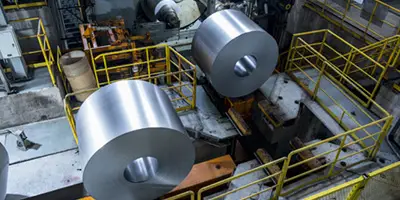

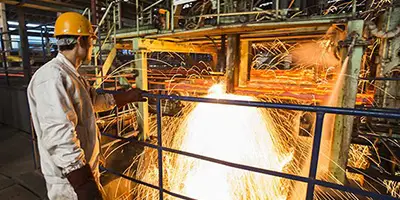
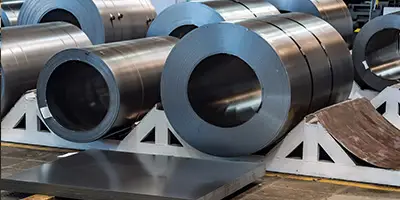

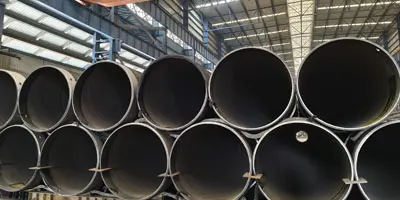

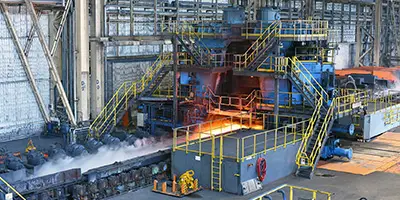
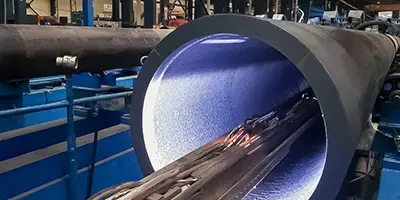
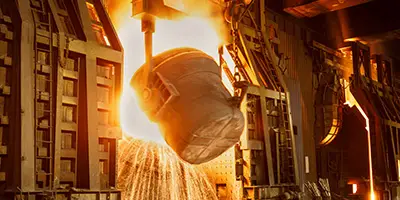

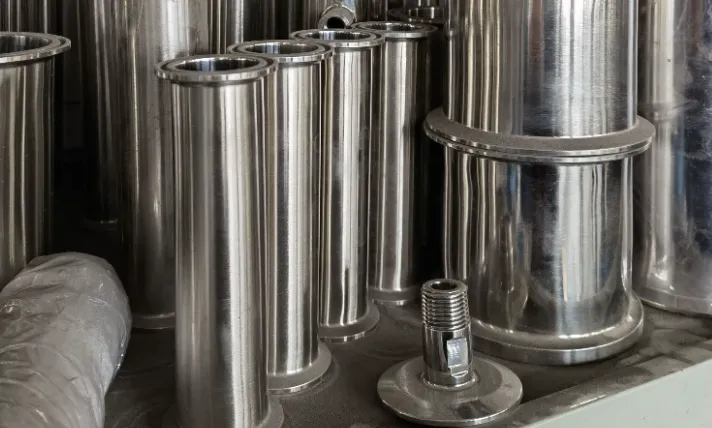
 Phone :
Phone :  Whatsapp :
Whatsapp :  Email :
Email : 


